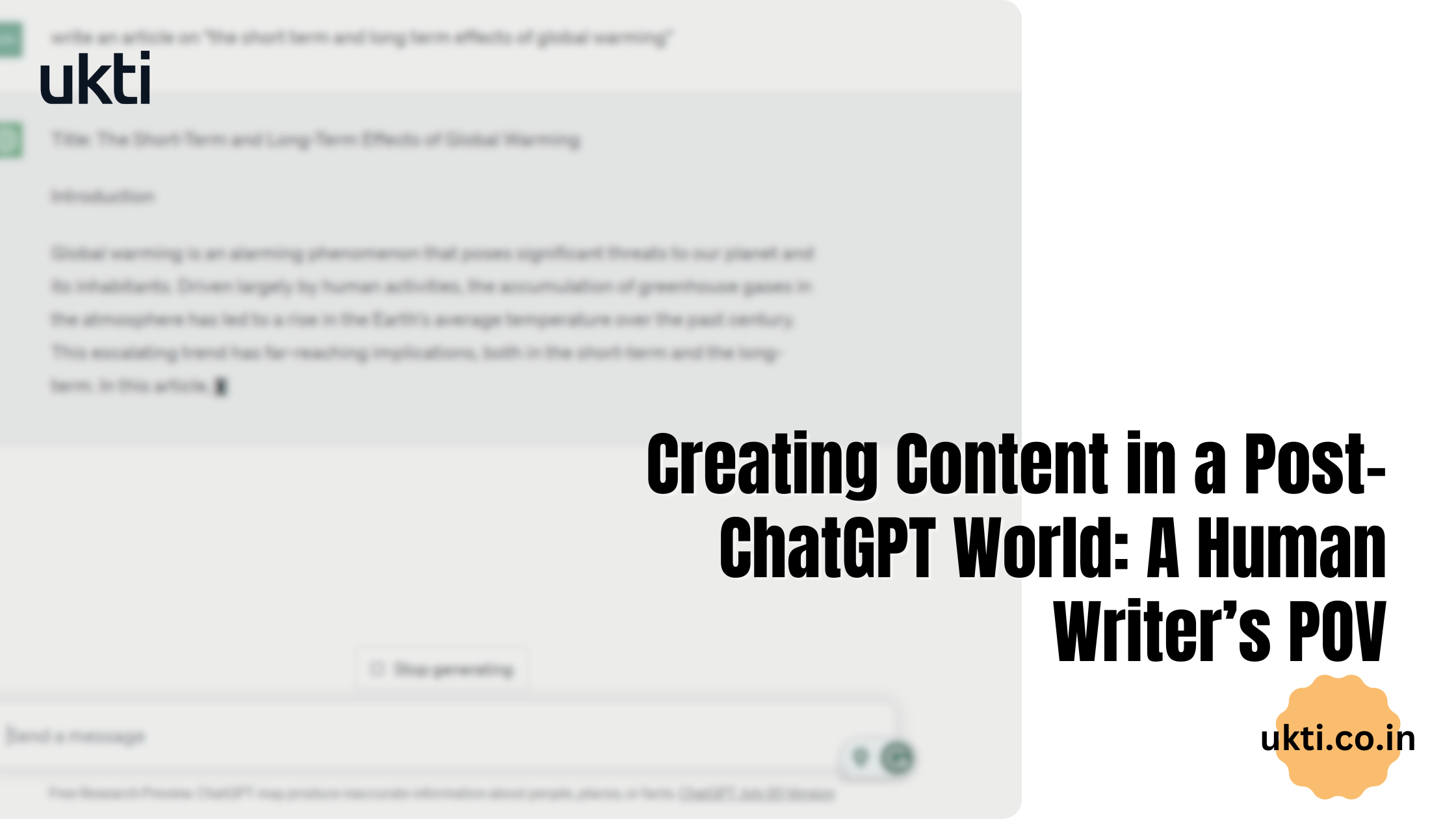It took me 8 long hours to submit my first-ever article as a content writer. It was my first day at Ukti, and being inexperienced, I was struggling to piece the article together. It had all the right words but lacked clarity of thought. It had complete sentences yet didn’t have a smooth flow. It cited all the correct sources, yet it needed more depth.
After two months and countless rounds of feedback later, I could write with clarity and delve into topics deeply. And about four months in, I nailed the flow for the first time. But it took me 6 whole months before I started getting positive feedback and fewer reworks. It was a grueling process going from a novice to a writer confident in her craft.
Today? Anyone can whip up content in minutes using a single prompt and call themselves a creator.
This is why as much as I’d like to believe that bots won’t replace me (at least not yet), I can’t deny that they’re already changing the content industry as we know it.
Human Writers Will Need to Surpass the Content Produced By ChatGPT
Tools like ChatGPT can spin words quickly to create publish-ready content, unlike human writers. They also don’t require training, only the right prompts and some editing. These bots also don’t require a salary, don’t have fixed work hours and are available virtually for free. So why would anyone want to invest in content writers now? For perspective, 28% of marketers are already using AI tools to create written content of all forms, from emails to blog posts. And this is concerning as a writer.
Looking at several ChatGPT-produced pieces for work and on LinkedIn has made me realise two things: 1) ChatGPT-produced content lacks humanness, and 2) Even with the best prompts, AI tools regurgitate words in similar, so the pieces generated also tend to lack depth.
Since I cannot match the content-producing speed of AI, I’m doubling down on things I can do. That is, making my content as unique as possible.
That means bringing my life experiences into my writing or tapping into those of others, going beyond Google for research (these days, I’m spending more time at Reddit threads and Slack communities!), and reading as much diverse content as possible.
Clients are Expecting More Authority in Content
One thing about mass-produced content is that it often sacrifices quality. That doesn’t necessarily mean badly written content or content with the wrong tonality. It has to do more with content that doesn’t differentiate itself.
One of our newer clients recently asked us to produce ‘research-backed’ and ‘original’ content that would stop readers in their tracks. The memo was writing content that didn’t read like ChatGPT-produced copycat content. As a writer, that demanded I unlearn relying on frameworks to produce content. And that I did.
Instead, I started developing a taste for well-written content beyond the industries I write for. That meant looking to unexpected places for inspiration, including news, fiction, advertisements and magazines, to understand different writing styles. It meant looking actively for quotes on platforms like Help A B2B Writer and LinkedIn and prepping for SME interviews to get original insights.
More People Will Use ChatGPT to Look Up Content
Thanks to tools like Google Bard and Bing Chat, we can now access the web through AI tools. This means many people might not use search engines (or keywords) to look up information and may ask an AI tool for help.
Just yesterday, I used ChatGPT to create eight scenarios wherein a customer would buy a product, and to my surprise, the responses mostly made sense. Then I searched for information on Bard and got the simplest explanation available with references.
Will more people use ChatGPT to consume content? I, for one, think yes. And this makes me wonder what will happen to organic content then.
As a writer, creating SEO-friendly blog posts is one of my biggest strengths. If AI-enabled search engines start eating the traffic, too, perhaps I will need to move on to other types of content like social media and email.
I feel in the future, writers who’re versatile will be more in demand. So, I want to develop and polish my writing, editing, and prompt-creation skills as much as I can. Ergo, write better content.
In a post-ChatGPT world, content creation will be more challenging than ever. But at the same time, I believe it’ll open doors for writers to include more creativity and original insights in their pieces instead of sticking to plain-old informational content.

